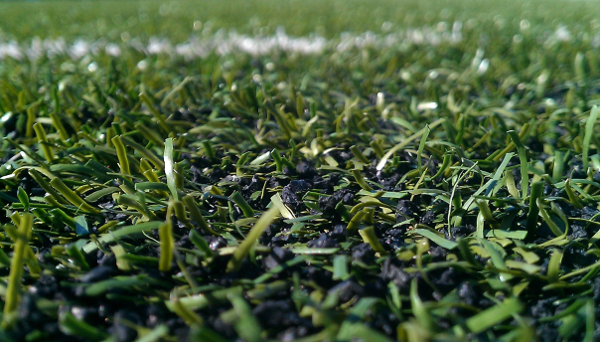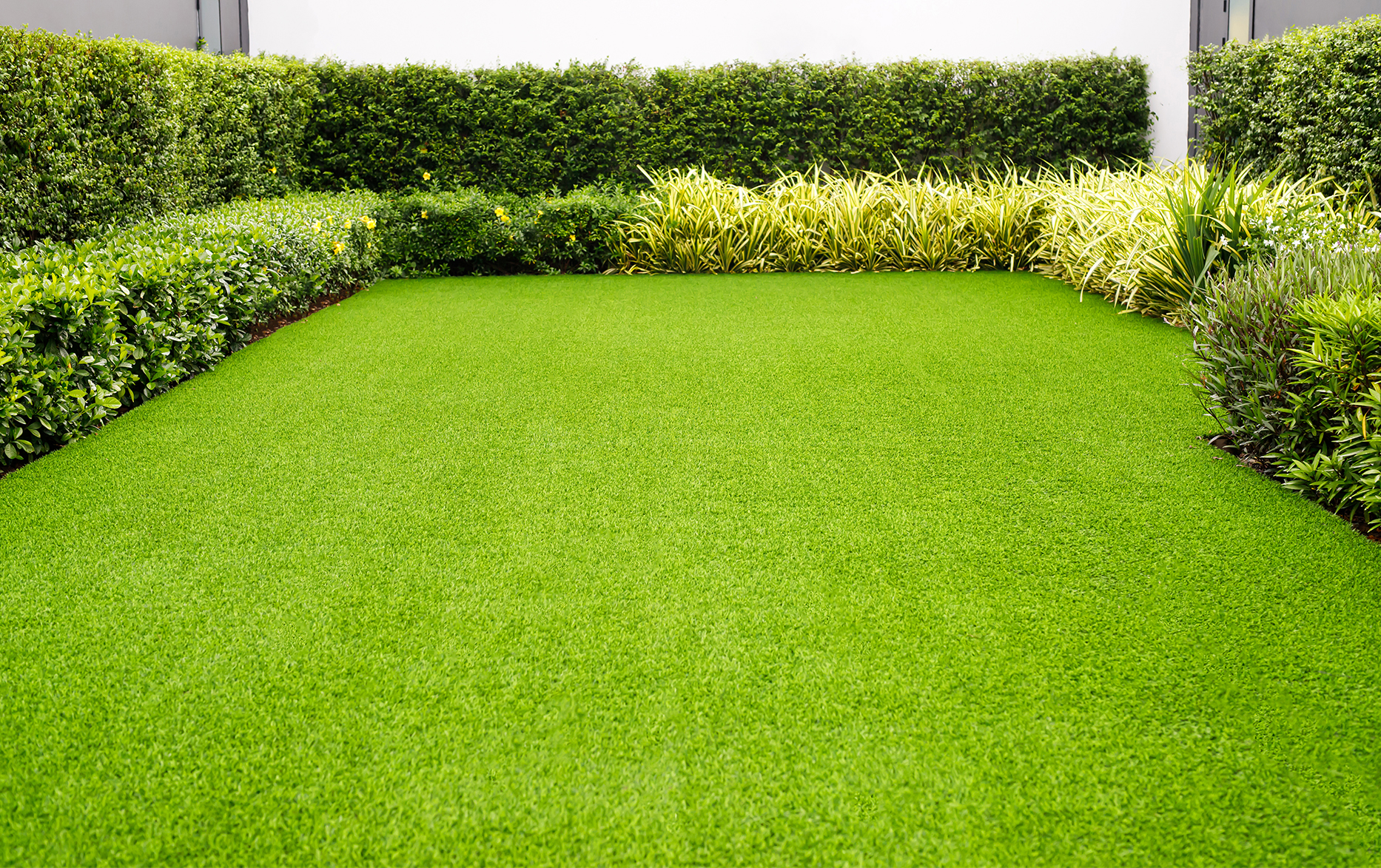Choose the Best Artificial Turf Companies Phoenix for Your Home or Business
Choose the Best Artificial Turf Companies Phoenix for Your Home or Business
Blog Article
Look Into the Environmental Perks of Opting for Artificial Grass Solutions
The adoption of synthetic grass options presents an engaging chance to address pushing ecological challenges. By considerably reducing water use and reducing the application of hazardous chemicals, these choices not just promote lasting landscaping yet likewise protect neighborhood environments. Furthermore, the reduced carbon impact related to decreased upkeep activities adds to a more lasting method to land monitoring. Nonetheless, the effects of these benefits extend past simple preservation initiatives, raising concerns regarding their long-lasting effect on habitat preservation and general environmental equilibrium. Checking out these measurements discloses a complex interaction worth thinking about.
Water Conservation Benefits
One of the most significant benefits of fabricated grass is its capability to conserve water. In contrast, artificial lawn does not require watering, dramatically lowering the total need for water resources.
By eliminating the demand for routine watering, synthetic grass adds to sustainable landscape techniques and aids alleviate the ecological effect of too much water consumption. The conservation of water prolongs to the reduction of overflow, which can lead to dirt erosion and river air pollution.
Additionally, the installment of synthetic grass allows districts and homeowners to designate water resources much more successfully, focusing on vital uses such as alcohol consumption water and farming. The change towards synthetic grass not just promotes responsible water usage however additionally aligns with broader environmental goals focused on protecting all-natural sources.
As communities increasingly prioritize sustainability, the water preservation advantages of fabricated turf provide a compelling situation for its fostering in business and household landscape design tasks.
Lowered Chemical Use
The change to synthetic grass considerably reduces the reliance on chemical treatments commonly used in natural yard maintenance. Traditional grass management usually entails the application of herbicides, fertilizers, and chemicals to promote development and control pests. These chemicals can position risks to human health, local wildlife, and the environment, adding to soil and water contamination.
In contrast, synthetic turf removes the demand for these dangerous substances. Once mounted, it needs very little upkeep, mainly containing routine cleaning and seldom infill replenishment. This reduction in chemical use not only profits the instant environment however also adds to wider eco-friendly stability. By minimizing the launch of synthetic substances into the environment, synthetic lawn promotes much healthier soil and water supply.
Furthermore, the lack of chemical runoff linked with synthetic lawn installments helps safeguard local rivers from air pollution, supporting marine life and preserving biodiversity. Artificial turf companies phoenix. As areas significantly prioritize lasting practices, going with synthetic grass presents a feasible remedy that aligns with ecological preservation goals. With this shift, home proprietors can enjoy rich green areas without compromising ecological health, leading the method for a much more sustainable future
Reduced Carbon Impact

Additionally, the installation of fabricated turf can cause considerable water conservation. All-natural grass call for considerable amounts of water for watering, which not just includes in the carbon impact connected with water extraction and treatment however likewise strains neighborhood water resources. In comparison, man-made lawn requires minimal maintenance, calling for no watering, thus considerably reducing water usage and its connected energy expenses.
Furthermore, the durability of synthetic grass adds to its reduced carbon influence. With a lifespan of as much as 15 years or even this article more, the need for frequent substitutes is diminished, resulting in less waste and reduced energy consumption in production and throwing away typical turf choices. Overall, synthetic grass offers a lasting alternative for eco mindful landscape design.
Environment Conservation
Habitat conservation is a vital factor to consider in the debate over landscaping selections, specifically when contrasting synthetic grass to all-natural lawn. Natural lawn lawns frequently call for extensive upkeep, consisting of using herbicides, plant foods, and pesticides, which can adversely influence local ecological communities. These chemicals can leach right into the dirt and rivers, hurting indigenous flora and animals and disrupting neighborhood habitats.
In comparison, synthetic lawn presents a chance to reduce the environmental impact of landscaping. By going with artificial turf, home owners can minimize the interruption of all-natural habitats connected with typical lawn care methods. Artificial grass removes the need for unsafe chemicals, thus shielding nearby wild animals and maintaining the stability of bordering communities. Moreover, the setup of synthetic grass can cause the conversion of previous yard areas into more biodiverse landscapes, such as pollinator gardens or native plant areas, which can support neighborhood wildlife.
Ultimately, the change to synthetic grass not only conserves water and reduces maintenance initiatives yet additionally promotes an extra harmonious partnership between human tasks and the natural surroundings, advertising environment conservation look what i found in the procedure.
Long-Term Sustainability
Lasting sustainability is a critical consider evaluating the benefits of fabricated lawn over traditional grass lawns. Among one of the most considerable advantages of synthetic grass is its durability; it can last approximately 15-20 years with marginal maintenance, whereas all-natural grass requires frequent reseeding and substitute. This long life reduces the requirement for constant sources, such as water, fertilizers, and chemicals, which are necessary for maintaining a healthy and balanced grass yard.
Additionally, artificial grass adds to a decrease in carbon emissions connected with lawn care tools. Standard grass commonly require gas-powered lawn mowers, trimmers, and blowers, every one of which add to air contamination. Phoenix turf companies. In contrast, synthetic grass gets rid of the demand for such equipment, promoting a cleaner setting
Furthermore, the manufacturing of artificial grass increasingly uses recycled products, enhancing its sustainability profile. As suppliers embrace environmentally friendly techniques, the environmental impact of synthetic grass remains to lessen.

Verdict
The adoption of synthetic lawn options presents considerable environmental benefits, including considerable water conservation, minimized reliance on unsafe chemicals, and a lower carbon impact. Synthetic grass help in protecting natural habitats by minimizing land disruption and promoting long-term sustainability with the use of resilient materials. Collectively, these aspects highlight the potential of artificial grass to add positively to ecological wellness and supply a feasible alternative to traditional landscaping practices in a significantly resource-conscious world.
In comparison, fabricated grass does not need watering, substantially minimizing the general demand for water sources. By reducing the release of artificial compounds right into the ecosystem, man-made turf promotes healthier dirt and water systems.
Furthermore, the setup of artificial lawn can result in significant water conservation. In comparison, artificial grass needs marginal maintenance, calling for no watering, thereby dramatically decreasing water usage and its linked power prices.

Report this page